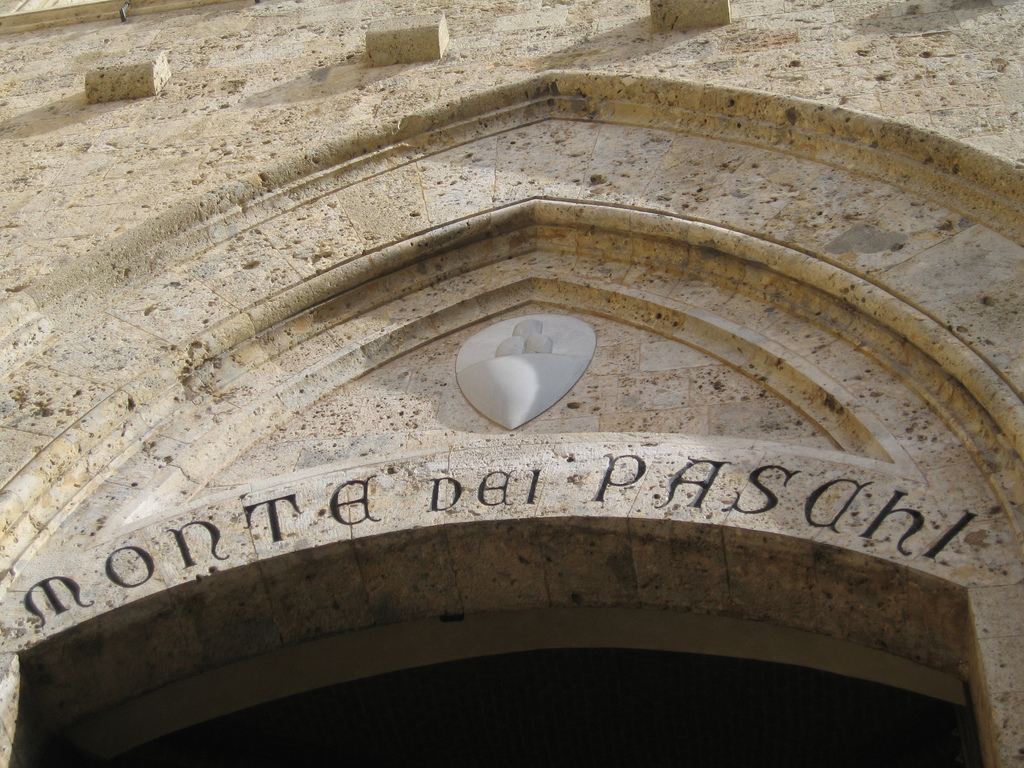In 2016, the third-largest Italian bank has been trying to attract 5 billion euros ($ 5.3 billion) despite political uncertainty in the country after a constitutional reform referendum.
"The Ministry of Economy believe that Monte dei Paschi will raise funds. In the event of failure, the state will carry out precautionary recapitalization" - said the source.
"Existence of the bank and its clients' savings will be saved in any case", - he said.
Monte dei Paschi said on Sunday that investors once again will be offered to exchange debt for shares. This way, the institution previously managed to raise about 1 billion euros from institutional investors.
Retail investors, who own 2.1 billion euros in secondary bank debt, refused to join in, as the proposal for conversion of debt into shares is considered too risky.
A source close to the board of directors said on Sunday that the prospect of the new government’s help gave the Monte dei Paschi confidence in being able to perform the plan despite the ECB's refusal to extend deadline for recapitalization.
Italian President Sergio Mattarella instructed Foreign Minister Paolo Gentiloni to form a new administration. Head of the Italian Ministry of Foreign Affairs is expected to present a list of proposed candidates to the administration on Monday.
Stabilization of the political situation must convince investors to invest in capitalization of Monte Paschi. Then, the bank will escape state financial aid and nationalization.
Therefore, there is nothing surprising in the fact that the bank will intensify its efforts to attract investors. It will also have to convince them to exchange debt for shares in the coming days. Given the new political factors, investors now may unbend and enter into a dialogue.
If the bank fails to provide a clear and agreed plan of salvation with participation of the private sector, the ECB may refuse to help, and so nationalization will become inevitable.
During 11-hour debate with participation of JPMorgan and Mediobanca, the bank worked out a new offer for 40 thousand retail investors holding subordinated bonds for EUR 2.1 billion. The original proposal, which would allow to raise EUR 1 billion from institutional investors, was deemed too risky for vast majority of ordinary investors.
There is also one protagonist in the plan. This is Qatar, which has long been considered as the anchor investor to inject EUR 1 billion in new capital. According to the plan, Qatar's sovereign fund may provide another EUR 1 billion, while consortium of banks will try to sell remaining shares on the market, without underwriting.
In fact, newly formed government of Gentiloni and participation of Qatar should be a strong catalyst for consent of investors.
For Italy, such a solution of Monte Paschi’s problem would be a very positive factor.
However, no decision will be taken until the ECB refuses to extend period of capitalization. Most likely, it will happen at the beginning of this week.
Apparently, the ECB will insist on need to solve the problem as soon as possible, with intervention of the state called undesirable.
source: reuters.com, bloomberg.com
"The Ministry of Economy believe that Monte dei Paschi will raise funds. In the event of failure, the state will carry out precautionary recapitalization" - said the source.
"Existence of the bank and its clients' savings will be saved in any case", - he said.
Monte dei Paschi said on Sunday that investors once again will be offered to exchange debt for shares. This way, the institution previously managed to raise about 1 billion euros from institutional investors.
Retail investors, who own 2.1 billion euros in secondary bank debt, refused to join in, as the proposal for conversion of debt into shares is considered too risky.
A source close to the board of directors said on Sunday that the prospect of the new government’s help gave the Monte dei Paschi confidence in being able to perform the plan despite the ECB's refusal to extend deadline for recapitalization.
Italian President Sergio Mattarella instructed Foreign Minister Paolo Gentiloni to form a new administration. Head of the Italian Ministry of Foreign Affairs is expected to present a list of proposed candidates to the administration on Monday.
Stabilization of the political situation must convince investors to invest in capitalization of Monte Paschi. Then, the bank will escape state financial aid and nationalization.
Therefore, there is nothing surprising in the fact that the bank will intensify its efforts to attract investors. It will also have to convince them to exchange debt for shares in the coming days. Given the new political factors, investors now may unbend and enter into a dialogue.
If the bank fails to provide a clear and agreed plan of salvation with participation of the private sector, the ECB may refuse to help, and so nationalization will become inevitable.
During 11-hour debate with participation of JPMorgan and Mediobanca, the bank worked out a new offer for 40 thousand retail investors holding subordinated bonds for EUR 2.1 billion. The original proposal, which would allow to raise EUR 1 billion from institutional investors, was deemed too risky for vast majority of ordinary investors.
There is also one protagonist in the plan. This is Qatar, which has long been considered as the anchor investor to inject EUR 1 billion in new capital. According to the plan, Qatar's sovereign fund may provide another EUR 1 billion, while consortium of banks will try to sell remaining shares on the market, without underwriting.
In fact, newly formed government of Gentiloni and participation of Qatar should be a strong catalyst for consent of investors.
For Italy, such a solution of Monte Paschi’s problem would be a very positive factor.
However, no decision will be taken until the ECB refuses to extend period of capitalization. Most likely, it will happen at the beginning of this week.
Apparently, the ECB will insist on need to solve the problem as soon as possible, with intervention of the state called undesirable.
source: reuters.com, bloomberg.com





